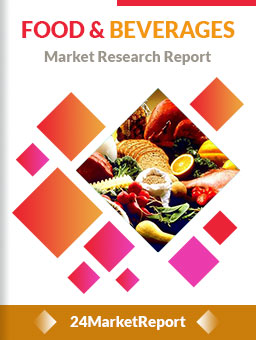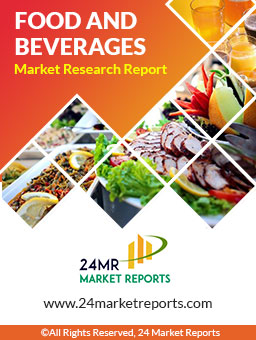
COMPANIES COVERED
Tyson FoodsDownload FREE Report Sample
Download Free sampleOrganic meat refers to products sourced from livestock raised on certified organic farms that adhere to strict guidelines. These include feeding livestock with organic feed, prohibiting the use of antibiotics and growth hormones, and raising animals in conditions that support natural behaviors. Unlike conventional meat, organic meat offers a healthier alternative with reduced levels of saturated fat and additives, making it increasingly popular among health-conscious consumers.
The global Organic Meat market was valued at USD 22,580 million in 2023 and is anticipated to grow significantly, reaching USD 43,291.25 million by 2032 at a CAGR of 7.50% during the forecast period.
In North America, the market size stood at USD 6,664.49 million in 2023, with a forecasted CAGR of 6.43% from 2024 to 2032.
The upward trajectory is driven by increasing consumer awareness of the benefits of organic products, stringent food safety standards, and the growing trend towards sustainable and ethical food sources.
Drivers
Rising Health Awareness: Consumers are increasingly opting for organic meat due to its perceived health benefits, including the absence of antibiotics and synthetic additives.
Sustainability: Organic meat production is aligned with environmental conservation practices, such as lower greenhouse gas emissions and sustainable land management.
To know more about market statistics, Download a FREE Sample copy
Government Support: Subsidies and certifications promoting organic farming bolster the growth of the organic meat industry.
Premium Pricing Potential: Organic meat commands higher prices, benefiting producers and supply chain stakeholders.
Restraints
High Production Costs: The cost of organic feed, certification, and farming practices leads to higher retail prices, potentially limiting consumer access.
Limited Supply Chain Infrastructure: The lack of advanced logistics and processing facilities can hinder scalability in emerging markets.
Opportunities
Market Expansion in Emerging Economies: Rising disposable incomes and increased awareness about organic products in Asia-Pacific and South America create substantial growth opportunities.
Product Diversification: Innovations such as organic processed meats, sausages, and ready-to-cook products cater to evolving consumer preferences.
Technological Advancements: Improved farming technologies and supply chain solutions can enhance efficiency and reduce costs.
Challenges
Regulatory Complexities: Differing organic certification standards across regions pose compliance challenges for exporters.
Competition from Alternatives: Plant-based and lab-grown meat alternatives represent a growing competitive threat.
The global Organic Meat market exhibits regional variations in demand and supply:
North America: Dominates the market with the highest adoption of organic meat, supported by consumer awareness and established organic standards. The U.S. accounts for the majority share due to its robust retail and foodservice sectors.
Europe: A mature market characterized by stringent regulatory frameworks and strong demand for certified organic products. Countries like Germany, the UK, and France are key contributors.
Asia-Pacific: Rapidly growing market, particularly in China, Japan, and India, driven by urbanization, rising disposable incomes, and a growing awareness of organic benefits.
South America: Emerging as a significant producer of organic meat, particularly in Brazil and Argentina, due to their expansive pasturelands and favorable climates.
Middle East & Africa: The market is gradually expanding, with increasing imports catering to affluent consumers and expatriate communities.
The Organic Meat market is highly competitive, with key players focusing on product quality, certifications, and expanding their distribution networks. Prominent companies include:
Tyson Foods: A leading producer emphasizing sustainability and product innovation.
JBS: Known for its extensive organic beef and chicken product lines.
Perdue Farms: A pioneer in organic chicken production.
Organic Prairie: Focuses exclusively on organic meat, leveraging direct-to-consumer sales channels.
Danish Crown: A key player in organic pork production.
These companies are investing in research and development, strategic partnerships, and marketing to strengthen their market positions.
The competitive landscape includes:
Tyson Foods
Tonnies
JBS
Perdue Farms
Organic Prairie
Danish Crown
Strauss Brands
Meyer Natural Foods
Australian Organic Meats
OBE Organic
Blackwood Valley Beef
Rastelli Foods Group
Verde Farms
Arcadian Organics
Eversfield Organic
Black River Meats
Greensbury
North America: Comprising the U.S., Canada, and Mexico.
Europe: Includes Germany, the UK, France, Italy, and others.
Asia-Pacific: Focused on China, Japan, India, and Southeast Asia.
South America: Encompassing Brazil, Argentina, and Columbia.
Middle East & Africa: Covering Saudi Arabia, UAE, Egypt, and South Africa.
What is the current market size of the Organic Meat market?
Which are the key companies operating in the Organic Meat market?
What are the key growth drivers in the Organic Meat market?
Which regions dominate the Organic Meat market?
What are the emerging trends in the Organic Meat market?
Customization of the Report
In case of any queries or customization requirements, please connect with our sales team, who will ensure that your requirements are met.
Chapter Outline

Speak to our Custom Research Team and get the Custom Research in a budget
Custom ResearchFrequently Asked Questions ?
A license granted to one user. Rules or conditions might be applied for e.g. the use of electric files (PDFs) or printings, depending on product.
A license granted to multiple users.
A license granted to a single business site/establishment.
A license granted to all employees within organisation access to the product.
Upto Working 24 to 48 hrs
Upto 72 hrs max - Weekends and Public Holidays
Online Payments with PayPal and CCavenue
Wire Transfer/Bank Transfer
Hard Copy




 Industry Market Size
Industry Market Size SWOT Analysis
SWOT Analysis Industry Major Players
Industry Major Players Revenue Forecasts
Revenue Forecasts Historical and Forecast Growth
Historical and Forecast Growth Profitability Analysis
Profitability Analysis
























